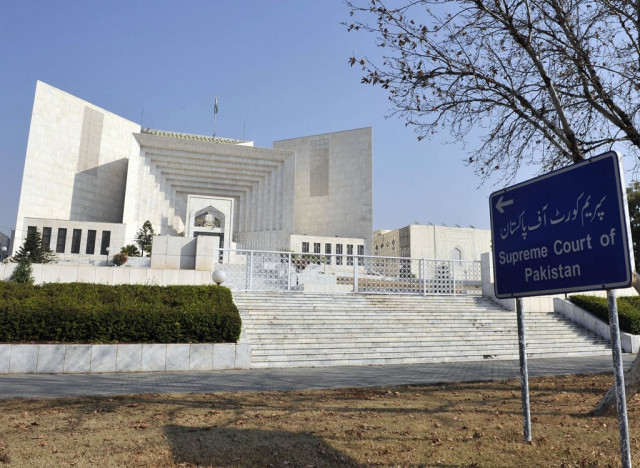Mismanagement: SC bristles at absence of drug pricing policy
Companies free to raise prices of medicines; regulatory body goes without chief

The Supreme Court has expressed its annoyance at the federal government for not appointing the permanent Chief Executive of Drug Regulatory Authority of Pakistan (DRAP) as yet. The court has also summoned the Attorney General for Pakistan today (Friday) to account for the delay.
Hearing a suo motu case regarding an increase in the price of medicines, the three-judge bench of the apex court headed by Chief Justice of Pakistan Nasir ul Mulk also asked the AGP to explain why the drug pricing policy has not been framed despite the passage of eight years. The bench lamented that most of the state’s institutions are running on ad hoc policies.
The court was surprised to learn that there is no specific punishment for any pharmaceutical company found guilty of illegally increasing the price of medicines. The chief justice said the matter is pending since 2006 and now the court will hear and issue a ruling in this regard.
Deputy Attorney General (DAG) Sajid Ilyas Bhatti said that after the passage of the 18th Amendment in 2010, the pharmaceutical companies have immensely increased prices of medicines. He stated that when the authority gave them notices, the companies challenged the DRAP’s orders in different high courts. Abdul Hafeez Pirzada, counsel for the Association of Pharmaceutical Companies, told the bench that the top court has no power to take all the cases from high courts directly.
He stated that the SC has the power to transfer a case from one high court to another one under Article 186 of the Constitution but it could not bring the case to the apex court. In an application DRAP has requested the Supreme Court to take over all cases pending in various courts regarding an increase in prices of medicines.
The DAG added that pendency of different litigations on the subject before different courts in different jurisdiction may cause conflicting views and the question of jurisdiction should be decided once and for all. He said 25 cases against DRAP decisions are pending in Sindh High Court at the moment.
Justice Amir Hani Muslim lamented that no physical punishment is given to the owner of any company that increases prices of medicines illegally. Once companies pay a fine for doing so, they start selling medicines at high prices again, he said. Justice Gulzar Ahmad observed that the licences of such companies should be cancelled.
The chief justice also asked the DAG why DRAP did not move appeals against the high courts’ restraining orders in favour of pharmaceutical companies. The law officer admitted that DRAP did not approach the SC in any case.
Later, the bench was told that DRAP’s acting chief executive is heading the authority. DRAP has blamed the manufacturers and importers of medicines for dragging the authority into the issue of drug pricing.
The subject of licensing, registration, import, export, quality control and fixation of prices of different drugs comes under DRAP’s ambit and the authority is supervised by the Ministry of National Health Services, Regulations and Coordination in Islamabad. Meetings with pharmaceutical manufacturers or importers are convened in Islamabad as well and SROs or notifications are also issued from the federal capital. Therefore DRAP states, only the IHC has the jurisdiction in such matters.
However, manufacturers and importers filed civil suits before the Sindh High Court, Lahore High Court or before a civil judge in Lahore, which was not permissible under the law. The companies managed to obtain interim injunctive orders in their favour.
Under Section 12 of the Drugs Act, 1976, the federal government is empowered to fix maximum retail prices of drugs and has already approved the drugs pricing committee of DRAP to fix and review maximum retail prices of drugs subject to approval by the federal government. Similarly, Section 39 bars all civil courts, except a drug court, to have jurisdiction in the matter.
Published in The Express Tribune, September 19th, 2014.



















COMMENTS
Comments are moderated and generally will be posted if they are on-topic and not abusive.
For more information, please see our Comments FAQ